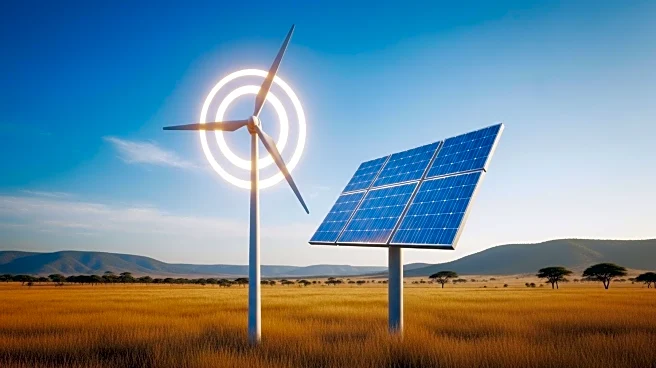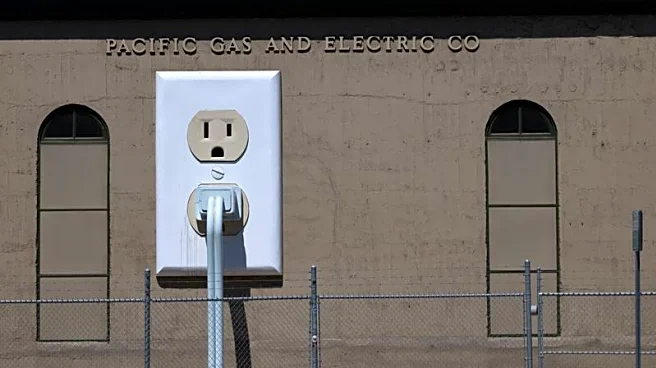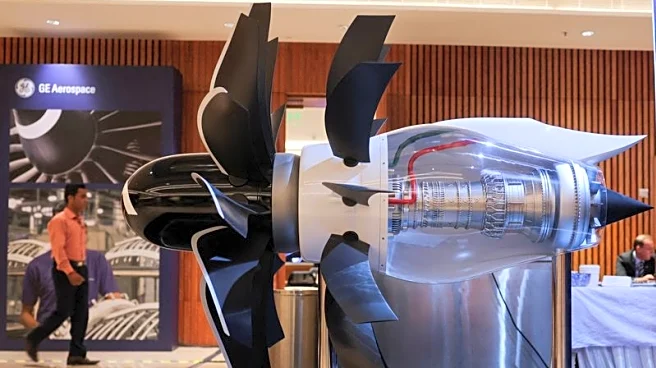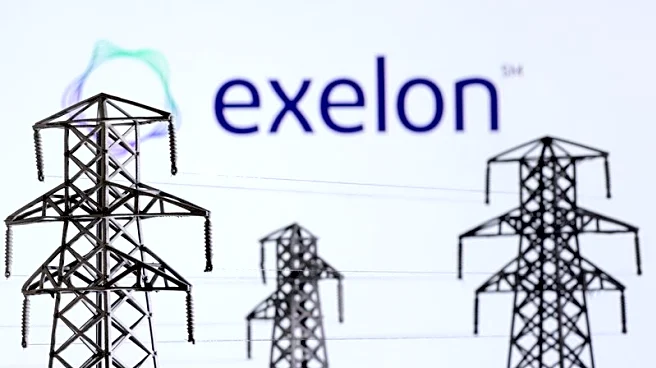What's Happening?
The European Union has announced a $638-million package aimed at scaling up renewable energy investments in Africa. The funds will support electrification, modernize power grids, and improve access to renewable energy across the continent. Key investments include $420 million for a high-voltage power line in Côte d’Ivoire, $69 million for rural electrification in Cameroon, and $53 million to increase access to affordable renewable energy in Somalia. This initiative addresses the significant energy access gap in Africa, where nearly 600 million people live without electricity.
Why It's Important?
The EU's investment in Africa's renewable energy sector is a strategic move to address energy poverty and promote sustainable development. By improving access to electricity, the initiative aims to enhance economic growth, reduce carbon emissions, and create up to 38 million green jobs by 2030. This investment reflects the EU's commitment to global climate action and its role in supporting developing regions. The focus on renewable energy aligns with international efforts to transition to cleaner energy sources, highlighting the importance of collaboration in addressing global environmental challenges.
What's Next?
The EU's package is expected to catalyze further investments in Africa's renewable energy sector, encouraging local and international stakeholders to participate in the continent's energy transition. The success of these projects will depend on effective implementation and collaboration between governments, businesses, and communities. As the initiative progresses, stakeholders will monitor its impact on energy access, economic development, and environmental sustainability. Continued support and investment will be crucial to achieving long-term energy goals and fostering resilience in Africa's energy infrastructure.
Beyond the Headlines
The EU's investment in Africa's renewable energy sector underscores the ethical and geopolitical dimensions of international climate action. By supporting energy access in developing regions, the initiative addresses social justice issues and promotes equitable development. This move also reflects the EU's strategic interests in fostering stability and economic growth in Africa, highlighting the interconnectedness of global environmental and economic challenges.










